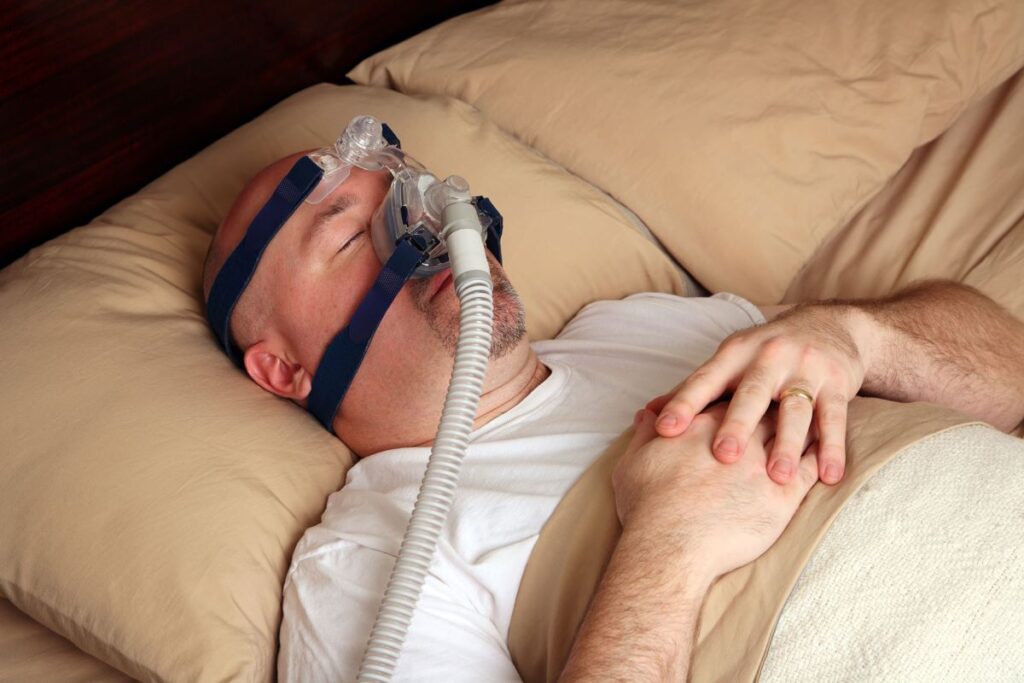What is Sleep Testing and Why is it Important in Perth?
Sleep testing in Perth is a diagnostic procedure that monitors your body’s functions during sleep to identify sleep disorders affecting your health and quality of life. These studies analyse brain waves, breathing patterns, heart rate, and oxygen levels to reveal what’s happening whilst you sleep.
The importance of sleep testing Perth residents can access cannot be understated. Undiagnosed sleep disorders may lead to serious health complications including cardiovascular disease, diabetes, depression, and impaired cognitive function. By undergoing professional sleep testing in Perth, individuals experiencing disrupted sleep patterns can benefit from early detection and targeted treatment, leading to improved daily performance and long-term wellbeing.
Common sleep disorders diagnosed through testing include:
- Obstructive Sleep Apnoea (OSA) – repeated breathing interruptions during sleep caused by airway blockage
- Insomnia – persistent difficulty falling asleep or staying asleep despite adequate opportunity
- Narcolepsy – excessive daytime sleepiness with sudden sleep attacks
- Restless Leg Syndrome – uncomfortable sensations in the legs creating an irresistible urge to move them
- Periodic Limb Movement Disorder – repetitive cramping or jerking of the legs during sleep
Sleep studies provide objective data that symptoms alone cannot reveal. A comprehensive sleep disorders diagnosis through professional testing enables targeted treatment plans tailored to your specific condition, transforming restless nights into restorative sleep that supports your physical health, mental clarity, and emotional balance.
What Symptoms Indicate the Need for Sleep Testing?
Chronic snoring accompanied by gasping or choking sounds during sleep signals potential breathing obstructions that warrant professional evaluation. These symptoms of sleep disorders often indicate obstructive sleep apnea, where the airway repeatedly collapses throughout the night, disrupting oxygen flow and sleep quality.
Daytime sleepiness that persists despite seemingly adequate sleep hours represents a red flag requiring investigation. When you struggle to stay awake during meetings, whilst driving, or during routine activities, your body may not be achieving restorative sleep cycles. This excessive tiredness often pairs with morning headaches caused by oxygen deprivation during the night.
Cognitive symptoms provide equally important warning signs:
- Difficulty concentrating on tasks that previously required minimal effort
- Memory lapses affecting work performance or daily responsibilities
- Irritability and mood changes that strain relationships
- Reduced reaction times creating safety concerns
Restless leg syndrome creates uncomfortable sensations in the legs, particularly during evening hours, making it difficult to fall asleep. This neurological condition causes an irresistible urge to move the legs, disrupting sleep initiation and maintenance.
Persistent insomnia lasting more than three months—characterised by difficulty falling asleep, staying asleep, or waking too early—requires clinical assessment. When sleep disturbances occur at least three nights weekly and impact daytime functioning, professional sleep testing can identify underlying causes and guide appropriate treatment strategies.
How Should Patients Prepare for a Sleep Test in Perth?
Preparing for sleep study appointments requires gathering specific documentation and establishing baseline information about your sleep patterns. Bring a comprehensive medication list including dosages, recent medical records, and any previous sleep-related test results to your appointment.
A sleep diary maintained for at least two weeks before your test provides valuable insights into your sleep patterns. Record your bedtime, wake time, number of night-time awakenings, daytime naps, caffeine intake, alcohol consumption, and perceived sleep quality. This information helps sleep physicians identify patterns that may not be captured during a single night’s testing.
Your clinic will likely send questionnaires about sleep quality and daily functioning before your appointment. Complete these thoroughly as they assess:
- Frequency and severity of snoring
- Daytime sleepiness levels using standardised scales
- Impact of sleep problems on work performance
- Mood changes related to poor sleep
- Partner observations of breathing pauses
On testing night, choose comfortable clothing such as loose pyjamas or athletic wear. Avoid tight-fitting garments that restrict movement or breathing. Pack toiletries for your normal bedtime routine, as maintaining familiar habits helps produce more representative sleep data.
Skip caffeine after midday and avoid alcohol on testing day, as both substances alter natural sleep architecture and may affect results accuracy.
What Are the Differences Between Home-Based and In-Lab Sleep Studies?
In-lab polysomnography provides the most comprehensive overnight sleep test available in Perth. Conducted in a dedicated sleep clinic, this method monitors brain waves, heart rate, breathing patterns, oxygen saturation, eye movements, and muscle activity simultaneously. Trained technicians attach sensors to your scalp, chest, and limbs, then observe your sleep throughout the night to ensure accurate data collection.
Home sleep study Perth options deliver a more convenient alternative for patients who prefer their own environment. You’ll receive portable monitoring equipment—typically including sensors for breathing, oxygen levels, and heart rate—with clear instructions for self-application at home. This approach suits those with suspected obstructive sleep apnea who find clinic settings uncomfortable or have mobility challenges.
Each testing method carries distinct benefits and constraints:
In-lab advantages:
- Comprehensive monitoring of multiple body systems
- Immediate technical support if sensors disconnect
- Ability to detect a wider range of sleep disorders
- Video recording to capture unusual movements
Home-based advantages:
- Sleep in your familiar bedroom environment
- Lower cost compared to laboratory studies
- No travel required for testing night
- More flexible scheduling options

Limitations to consider:
- Home tests may miss complex sleep disorders beyond sleep apnea
- In-lab studies require overnight clinic stays away from home
- Home equipment can occasionally malfunction without technical assistance
- Laboratory testing typically costs more upfront
Your sleep physician will recommend the most appropriate option based on your specific symptoms and suspected condition.
What Happens During a Sleep Test?
Does a sleep test hurt or require any invasive procedures? No—the polysomnography procedure is completely painless and non-invasive, involving only external sensors attached to your skin.
When you arrive for your sleep study, a trained technician will attach small sensors to specific areas of your body using gentle adhesive. These sensors track multiple physiological functions simultaneously throughout the night.
What Gets Monitored
The monitoring during sleep test captures comprehensive data:
- Brain waves (EEG) – electrodes placed on your scalp detect sleep stages and any unusual brain activity
- Heart rate and rhythm – chest sensors record cardiac function
- Breathing patterns – belts around your chest and abdomen measure respiratory effort
- Blood oxygen levels – a clip on your finger tracks oxygen saturation
- Leg movements – sensors on your legs detect restless movements
- Eye movements – electrodes near your eyes identify REM sleep phases
The technician ensures all equipment functions properly before you settle in for the night. You can move naturally during sleep—the wires have enough length to allow comfortable position changes.
Throughout the night, sophisticated equipment continuously records this data, building a detailed picture of your sleep architecture. This information reveals how often you cycle through sleep stages, any breathing interruptions, oxygen level drops, or movement disorders that disrupt rest. Such insights are crucial as they help in understanding various sleep disorders and tailoring appropriate treatment plans. Click here to get more about what your Apnea results really mean for your health.
How Long Does It Take to Get Results and Diagnosis After a Sleep Test?
Most patients receive their sleep test results within 7 to 14 days after completing their study. The sleep test results timeline depends on the complexity of your case and the clinic’s current workload, though some facilities in Perth offer faster turnaround times for urgent cases.
The Review Process
A qualified review by sleep physician begins once your overnight data is collected and scored by trained technicians. Sleep specialists analyse hundreds of data points from your study, including:
- Brain wave patterns across different sleep stages
- Breathing interruptions and oxygen desaturation events
- Heart rate variations throughout the night
- Body movements and limb activity
- Time spent in each sleep phase
This thorough examination ensures accurate diagnosis after sleep study rather than rushed conclusions based on incomplete analysis.
When Treatment Plans Are Provided
Your sleep physician typically schedules a follow-up consultation once they’ve completed their assessment. During this appointment, you’ll receive:
- A detailed explanation of your diagnosis
- Severity classification of any detected disorders
- Personalised treatment recommendations
- Answers to questions about your specific condition
Some Perth clinics provide preliminary results via phone call if immediate intervention is needed, particularly for severe obstructive sleep apnea cases requiring urgent CPAP therapy initiation. Your GP may also receive a copy of the comprehensive report for your ongoing medical records.
What Treatment Options Are Available After a Sleep Disorder Diagnosis?
Treatment begins immediately after your sleep physician confirms a diagnosis, with options tailored to your specific condition and severity. CPAP therapy Perth clinics commonly prescribe Continuous Positive Airway Pressure devices for moderate to severe obstructive sleep apnea, delivering pressurised air through a mask to keep airways open during sleep.
Insomnia Treatments
Insomnia treatments typically start with cognitive behavioural therapy for insomnia (CBT-I), which addresses thought patterns and behaviours disrupting sleep. This evidence-based approach helps patients develop healthy sleep habits without relying on medication, though short-term sleep aids may be prescribed when appropriate.
Narcolepsy and Restless Leg Syndrome Medications
Patients diagnosed with narcolepsy or restless leg syndrome receive targeted medications to manage their specific symptoms. Dopamine agonists often prove effective for restless leg syndrome, whilst stimulants and sodium oxybate help control excessive daytime sleepiness in narcolepsy cases.
Lifestyle Changes for Sleep Disorders
Lifestyle changes for sleep disorders form a critical component of any treatment plan:
- Weight management: reduces sleep apnoea severity by decreasing pressure on airways
- Dental appliances: reposition the jaw to prevent airway collapse during sleep
- Sleep position training: encourages side-sleeping to minimise breathing disruptions
- Alcohol and caffeine reduction: improves sleep quality and reduces apnoea episodes
Perth sleep clinics provide ongoing support to adjust treatments, ensuring optimal comfort and adherence for long-term success.

What Are the Costs and Insurance Coverage for Sleep Testing in Perth?
Most sleep testing services in Perth require a GP referral before booking, which is the first step in accessing diagnostic services. Your general practitioner assesses your symptoms and determines whether a sleep study is medically necessary, which directly impacts insurance coverage eligibility.
The cost of sleep studies Perth varies depending on the type of test and facility chosen. In-lab polysomnography typically costs more than home-based testing due to the comprehensive monitoring equipment and overnight facility use. Private sleep clinics may charge different rates compared to hospital-based services.
Insurance coverage for sleep tests depends on your health fund and policy level. Most private health insurance plans cover medically necessary sleep studies when you have appropriate extras or hospital cover. The level of coverage varies significantly:
- Basic policies may provide minimal rebates or exclude sleep testing entirely
- Mid-tier plans often cover a portion of diagnostic costs with annual limits
- Comprehensive policies typically offer higher rebates for both testing and treatment equipment
Medicare provides rebates for bulk-billed services at certain clinics, though out-of-pocket expenses may still apply. Some facilities offer payment plans for patients without adequate insurance coverage. Contact your health fund before booking to understand your specific entitlements, gap payments, and whether your chosen clinic has agreements with your insurer that reduce costs.
Conclusion
Sleep symptoms deserve professional attention. If you’re experiencing chronic snoring, excessive daytime tiredness, morning headaches, or difficulty concentrating, booking a sleep test could be your first step towards better health. Perth residents now have access to both in-lab and home-based testing options, making diagnosis more accessible than ever.
Early detection of sleep disorders leads to effective treatment and significantly improved quality of life. With your GP referral in hand and these answers to common questions about Sleep Testing in Perth: 7 Common Questions People Ask Before Booking, you’re equipped to make informed decisions on sleep testing.
Don’t let another restless night pass—speak with your GP today about whether sleep testing is right for you.
FAQs About Sleep Testing in Perth
Sleep testing in Perth is a diagnostic procedure that monitors your sleep patterns, breathing, and oxygen levels to detect sleep disorders. It’s crucial for identifying conditions like sleep apnea, insomnia, and restless leg syndrome before they cause serious health issues.
2. What symptoms suggest I might need a sleep test?
Common symptoms include loud snoring, choking during sleep, persistent fatigue, morning headaches, difficulty concentrating, and mood changes. These may indicate underlying sleep disorders that need professional evaluation.
3. How should I prepare for a sleep study in Perth?
Before your test, maintain a two-week sleep diary, avoid caffeine and alcohol on the test day, wear comfortable clothing, and bring your medication list and relevant medical records to the clinic.
4. What’s the difference between home and in-lab sleep tests?
In-lab studies provide the most detailed results with full monitoring and technician support, while home-based tests offer convenience and comfort but may miss complex sleep disorders.
5. What happens during a sleep test?
Technicians attach small, painless sensors to track your brain activity, breathing, oxygen levels, and movements throughout the night, helping identify any disturbances in your sleep.
6. How long does it take to get sleep test results?
Most patients receive results within 7–14 days. Sleep specialists analyse your data carefully before providing a detailed report and personalized treatment plan.
7. What treatments are available for sleep disorders diagnosed in Perth?
Treatment options include CPAP therapy for sleep apnea, cognitive behavioural therapy for insomnia, medications for restless leg syndrome or narcolepsy, and lifestyle changes like weight loss or improved sleep hygiene.
8. How much does a sleep test cost in Perth, and is it covered by insurance?
Costs vary depending on the test type and clinic. Medicare and most private health funds offer partial or full rebates for medically necessary sleep studies, depending on your policy.
9. Why should I get tested for sleep disorders early?
Early testing allows timely treatment, preventing long-term health issues such as heart disease, diabetes, and depression while improving daily energy, focus, and overall wellbeing.
